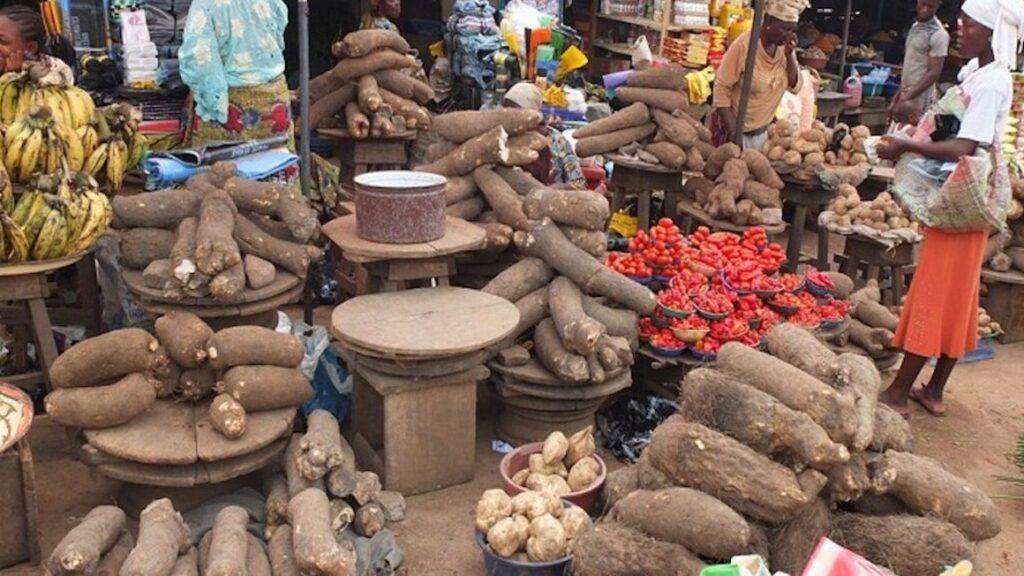Read in
The 2023 Cadre Harmonise report released on March 15, 2023 noted that cash and petrol scarcity as well as rising insecurity and climate change have caused food crisis affecting more than 24.8 million Nigerians. PHOTO | COURTESY | NIGERIA’S MINISTRY OF AGRICULTURE
Summary
- The CH was developed on request by Nigeria as an early warning tool to prevent food and nutrition crisis.
- The government of Nigeria established the National Social Investments Programmes in 2016 to tackle poverty and hunger.
- Unicef says it is working with Nigeria and partners to invest in scaling up preventive nutrition interventions. MOHAMMED MOMOH
The crunching cash and petrol scarcity as well as rising insecurity and climate change in Nigeria have caused food crisis affecting more than 24.8 million of its citizens.
Food scarcity has become more crunching in 26 out of the Nigeria’s 36 states and the country’s Federal Capital Territory (FCT).
The 2023 Cadre Harmonise (CH) report on Food and Nutrition Insecurity Analysis for Nigeria released on March 15, 2023 in Abuja noted the dire situation.
The report said that food insecurity had been on the rise in recent years, with millions of Nigerians struggling to access food on a daily basis.
The March to May 2023 CH analysis of Food and Agriculture Organisation (Fao) unveiling the troubling situation was the point of reference at the workshop.
Acute nutrition, food crisis
Fao said millions of Nigerians could experience acute nutrition and food crisis between June and August this year, following the lingering fuel and cash scarcity in the country.
Read: Strengthening Africa’s food systems for greater nutrition
Fao Nigeria Representative Fred Kafeero on Wednesday said about 17.7 million people, including 14,000 internally displaced persons (IDPs) in the country’s 26 states and the FCT, would be in serious crisis or worse through May 2023.
Food and Agriculture Organisation Representative to Nigeria Mr Fred Kafeero. PHOTO | EDWIN MJWHUZI | NMG
The report identified Central Bank of Nigeria’s (CBN) currency re-design policy as one of the key drivers of the crisis.
The report stated that the withdrawal of the old notes from circulation without proportionate supply of new banknotes created serious bottlenecks to households’ ability to access cash and food.
“Insecurity especially insurgency in the northeast Nigeria states, particularly in Borno, Adamawa and Yobe still persists. Armed banditry and kidnapping for ransom in some northwest states such as Katsina, Sokoto and Kaduna as well as north central states of Benue and Niger have also lingered,’’ Kafeero said.
He further explained that the CH, a tool adopted by partners in the FSS, developed on request by the government as an early warning tool to prevent and manage food as well as nutrition crisis.
He reported that the process in Nigeria was led by the country’s ministry of agriculture and rural development, through the National Programme for Food Security (NPFS) in collaboration with other government agencies.
The programme has technical and financial support from the Fao, World Food Programme (WFP), Save the Children, Unicef and Mercy Corps among others.
Food crisis a major challenge
FMARD Permanent Secretary Ernest Umakhihe at the workshop described the report which was first released in January 2023 as apt because Nigeria was going through post Covid-19 and the Russia-Ukraine crisis.
He also confirmed that overwhelming insecurity which has continued to threaten Nigeria’s food and nutrition security have led to disruptions in food production and distribution systems.
African Development Bank (AfDB) President Akinwumi Adesina noted that food insecurity was a major challenge facing Nigeria and the African continent as a whole.
“We need to invest in agriculture as well as improve access to credit and other resources for smallholder farmers to ensure that we can produce enough food to feed our growing population,” Adesina said.
Similarly, African Centre for Development and Strategic Studies (ACDSS) Executive Director Adebayo Adedeji emphasised the need for innovative solutions to address food insecurity.
“We need to promote sustainable farming practices, increase investment in irrigation and other technologies as well as improve infrastructure to ensure that food can be transported to areas where it is needed most,” Adedeji said.
Successful interventions
Despite these challenges, there are also examples of successful interventions aimed at reducing food insecurity in Nigeria.
The Nigerian government established the National Social Investments Programmes (NSIP) in 2016 to tackle poverty and hunger across the country.
The suite of programmes under the NSIP focuses on ensuring a more equitable distribution of resources to vulnerable populations, including children, youth and women.
Since 2016, these programmes have supported more than 4 million recipients countrywide through a fair and transparent process supported by the Nigeria’s Ministry of Budget and National Planning and other notable MDAs with aligned goals.
Meanwhile, Unicef reports that it is working with the Nigerian government and other partners to invest in scaling up preventive nutrition interventions and ensure that vulnerable children have access to life-saving nutrition services.
In 2022, Unicef with partners was able to reach approximately 650,000 children with life-saving nutrition services across the six states.



